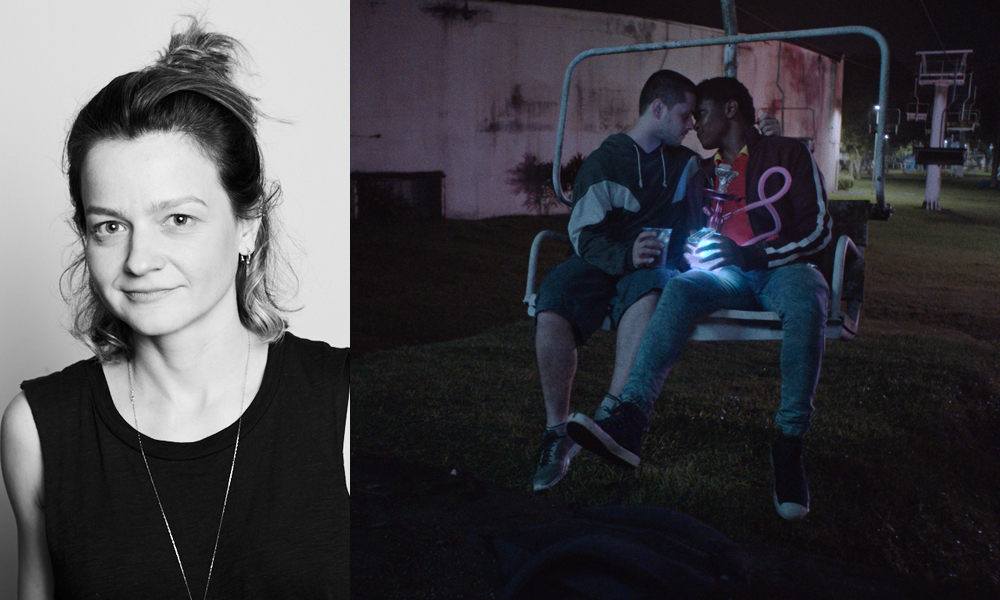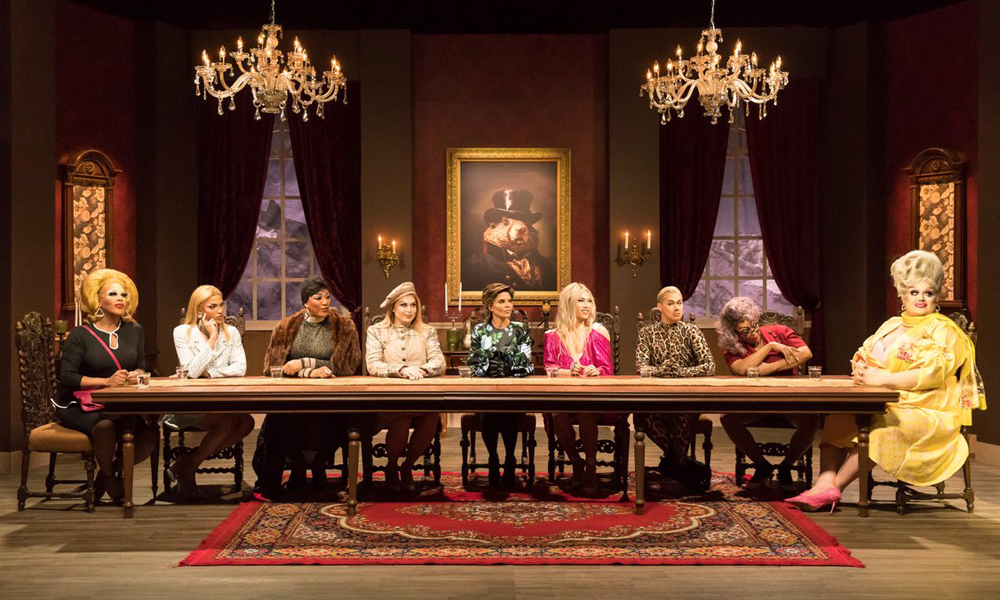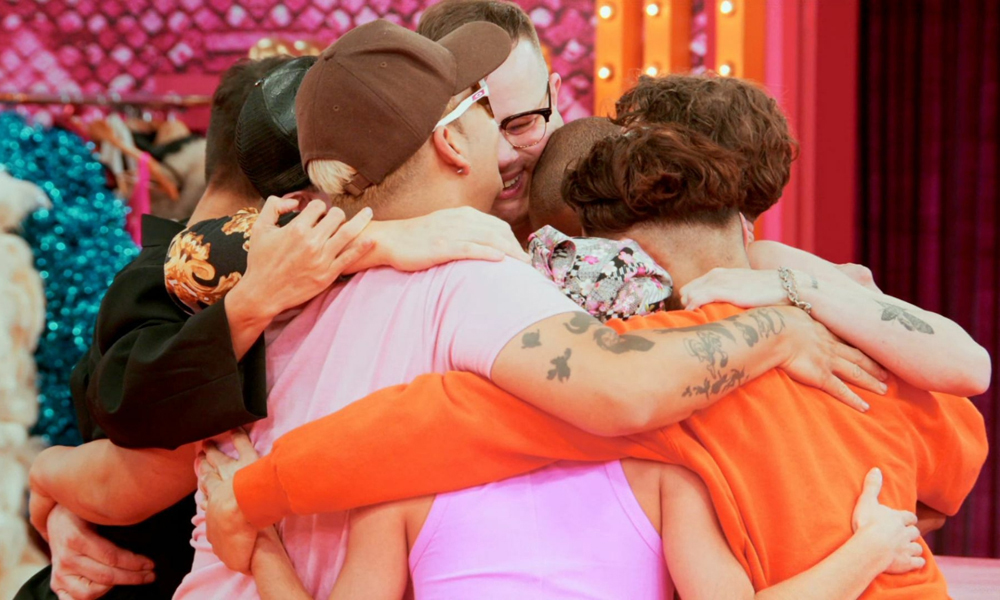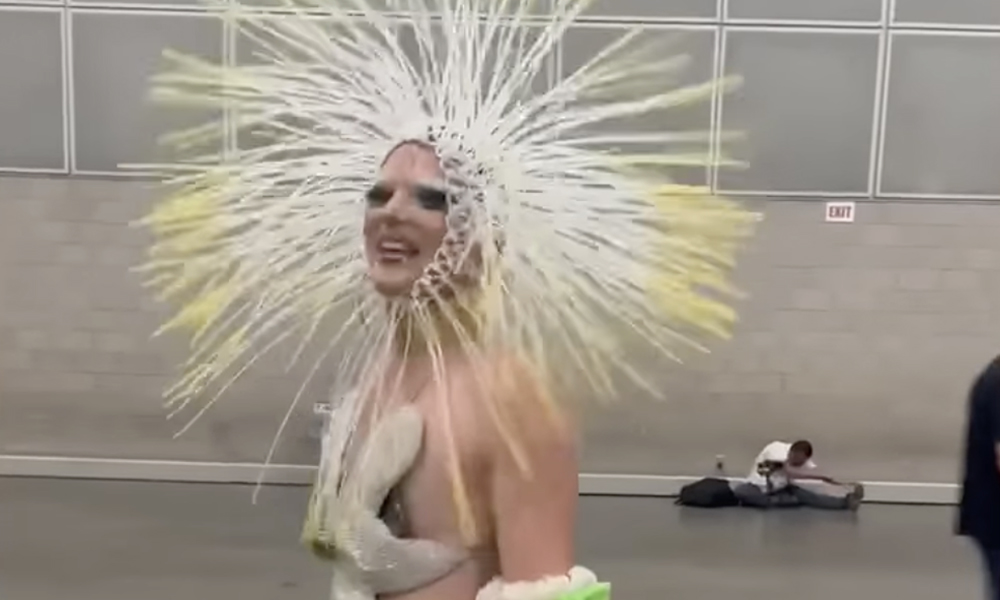IN Magazine talked with the writer/director of Toll to discuss the film, its premiere at TIFF, and its complex mother/son story…
In its world premiere at the Toronto International Film Festival this month, Toll will represent a modern take on gay conversion therapy programs that still exist around the world. Set in Brazil and filmed in Portuguese, the movie focuses on a single mother’s struggle to accept her gay son while others influence her to force him into conversion therapy before he turns 18. While conversion therapy has been outlawed in Canada, workshops have sprung up globally to fight what many believe is a cause for concern in today’s youth. These programs don’t work and often traumatize those forced to take them against their will.
Director Carolina Markowicz decided to highlight these outdated practices with her latest film, Toll, starring Maeve Jinkings and Kauan Alvarenga. Jinkings plays Suellen, a toll booth operator who gets into business with criminals in order to afford the high tuition of a gay conversion therapy workshop led by a local pastor. Suellen is determined to send her 17-year-old son Antonio (Alvarenga) to this workshop so he can be a “normal” kid and grow up to marry a woman and have children. Toll will debut at the Toronto International Film Festival, and Markowicz hopes to obtain distribution to the United States and Canada soon. I was privileged to screen the film before the festival started and discuss the complicated story with Markowicz.

I had a chance to screen Toll and it’s fantastic. Would you mind telling me a little bit about the movie and how you came up with the premise?
Here in Brazil, there’s still today, a lot of these homophobic movements that are growing stronger, that grew up stronger in the last few years. Violent, but ridiculous. We have this former Minister of Human Rights that would say that not just women, but everyone should not play with Disney’s Frozen [toys] because she’s a lesbian. There was this guy who was a deputy that would say that the anus was evil, that it’s something that shouldn’t be used for sex because it’s evil. I mean, it’s so pathetic. It’s almost funny and I’m like, “Oh my God, how do people believe in those things?” It’s completely crazy. So I was always fascinated by this movement of violence and how people believe in those things. So I always wanted to do something portraying this insanity. At the same time, it’s not only religious people that makes me more concerned about liberty. It’s almost solid in society that homophobia [exists]. A mother or a father are not religious; they don’t want to have a gay kid. They don’t accept the gay kid. Why? Because it’s not right. Why is it not right? Because no, I don’t want a gay kid. I would rather have anything but a gay kid. So it’s something so rooted that I really wanted to do something for us. To give a discussion on it.
Antonio, the son in the film. He is a very confident character. He seems to be very open with himself and others about who he is. Maybe still trying to figure it all out but seems to be understanding of where he is in his life. How important was it for you to portray that character to be confident and to make sure that his mother is sort of seen as an anti-hero?
Yeah, it was a very important point for me not to make him a victim or a weak character, because I think he is in a situation that is already very fragile, of a person that is not accepted by his own mother. But I didn’t want him to be so bidimensional, I wanted people to have more colors and to have more idiosyncrasies. I didn’t want the [mother] to be so hateful at the same time, as she loves him. He is also a teenager, sometimes he’s a pain. This mother is a product of this broken society that teaches everyone that being gay is bad. So if you have a bad kid, you did something wrong. So it’s part of a system that doesn’t work well, and I wanted to portray it as if no one was either a hero or evil. Even though the boy is suffering way more than her, she doesn’t accept him. He has his personality. He works hard. He’s very intelligent. He’s sophisticated. For me, it was very important to portray a boy who was finding out about his sexuality because he’s young. That we saw him as someone who would do well, that would survive and also needs his mom. He loves her, but he won’t give up being who he is.
You mentioned the mother, Suellen, and the system she’s a part of. She’s very influenced by her coworker, who has her own demons herself, so to speak. Suellen is also influenced by her boyfriend and then the criminal activities she gets involved in. Do you think she’s actually ashamed that she has a gay son or do you think it has to do with these outside influences?
I think it’s part of saying the same package. She’s very ashamed about him because what she has learned is right or wrong, and people keep telling her that. Her boyfriend, I don’t think he is the worst influence at this point. He even normalizes them, but he has other problems. He’s not a good person at all. Her friend who keeps telling her that her son has a problem is the most hypocritical one ever. I think that all these environments and all these people and what she has learned since she was a little kid may make her feel ashamed of her son. Make her feel bad about having a son like this. Everything goes together, I think.
This is the second collaboration you have enjoyed with the main actress, Maeve Jinkings. Do you see any other projects on the horizon for the two of you to work on together again?
Absolutely, I’m developing now two new projects that I are still in very early development. So I don’t have much to say, but whenever I have a part that fits her, I would love to work with her because she’s incredibly talented. She’s so hard working and we get along very well. So I would always love to work with her and also with the other part of the cast. I really enjoy working with the same actors that I feel have this huge range of emotions and that can do very well in either drama or humor. She has this vibe. She’s very intelligent and very, very talented.
I would be remiss if I didn’t ask you about the TIFF Emerging Talent Award that you will be receiving at the festival. That’s very exciting! What does this award mean to you and your career as a filmmaker so far?
I’m so proud and honored to receive it. I wasn’t expecting it at all. It was such a great surprise. It means a lot to me. I think the Toronto Film Festival has always supported my voice as an artist and a lot of doors have been opening to me since I played my films in Toronto. I met a lot of people and a lot of people got interested in my films. I made some very good contacts, also with producers and I think it encourages me a lot. I was so touched by Cameron Bailey’s (CEO of TIFF) words when he said that I am a “fearless director.” It makes me so happy because I think it’s so hard to take risks nowadays. I feel this is a very important part for me and I really think it is very important that I keep taking risks. So an award that says that encourages me even more to take this path of doing risky art. It makes me very happy to have this recognition.
With Toll, what do you hope that the audience gets out of seeing this movie? When the credits start rolling, what do you hope they take away from it?
I think the most important thing is that you need to support people you love the way they are. If people have the support of people that love them, they can deal with anything outside of the home. Also to portray those crazy people who perform those conversion therapies and to tell their people to go there that they are insane: stop doing that.
I think it’s getting better but I hope it gets a lot better soon. Thank you so much, Carolina and good luck at the festival!
Thank you so much, Matthew.
RELATED:






POST A COMMENT